Shariah Screening Services
Are you looking for shariah screening services?
Thank You!
For your interest
Our Business Executive Team
will Reach You Shortly!
Email
info@ratingsintelligence.com
Telephone
+91 98 8622 1227
What is Shariah Screening?
Shariah equity screening is a dynamic process to determine if investment in the equity of a listed company is permissible from a Shariah perspective.
Shariah Equity screening is guided by a Shariah Equity Screening Criteria.
What is a Shariah-compliant Equity investment?
Investments made in equity stocks, screened in accordance with Shariah principles under the guidelines of Shariah supervisory board are called Shariah - compliant equity investments.
Such Shariah equity screening is used by Islamic equity fund managers to identify a list of Shariah permissible stocks to invest in, while managing a Shariah compliant fund or portfolio of stocks.
A Shariah-compliant fund needs to pass sector based and accounting ratio screens.
Some of the Sector based Shariah exclusions are:
Revenues from sales of Alcohol, Pork, Tobacco, Gambling, Pornography, Conventional Financial Services, Conventional Insurance, trading of Gold & Silver on deferred cash basis.
Our Uniqueness
We follow established Shariah screening criteria set up by our well known Shariah Advisory Board.
Our Shariah Equity Screening Outsourcing Solution enables fund managers an access to a pre-screened universe of stocks which are Shariah compliant.
Our system and technology can be customized to classify equities as Shariah-compliant based on any custom criteria specified by the asset manager’s Shariah committee as well.
Our dynamic Shariah audit tool helps Shariah funds remain in continuous Shariah compliance by generating precise Shariah Compliance audit reports at the desired frequencies.
Why Ratings Intelligence?
-
Ratings Intelligence possesses deep knowledge and insight which helps Shariah equity fund managers in identifying Shariah-compliant equities.
-
We bring our vast experience and cutting-edge research to ensure such Shariah equity screening is in strict adherence to Shariah rules.
-
Ratings Intelligence works with “In-house” board of internationally reputed Shariah scholars.
-
Access to a world class Shariah committee.
-
A dedicated team of analysts, supervised by qualified experts in finance.
-
Customised screening criteria
-
Dynamic compliance as stocks are updated for compliance on fixed regular intervals.
-
Ratings Intelligence is the exclusive Shariah screening provider to S&P and Dow Jones Shariah Indices.
Shariah Supervisory Board
Ratings Intelligence has an eminent Shariah advisory board which guides the Shariah screening principles and processes.
The role of the Shariah Advisor is as follows:
-
Provide thought leadership on Shariah screening methodologies.
-
Provide guidance on Shariah equity screening principles.
-
Provide clarification on Shariah screening issues.
-
Engage in discussion to review and adjudicate on emerging compliance questions.
Our Shariah Board Members

Dr. Muhammad Ali El-Gari
Chairman

Dr. Nazih Hammad
Member

Dr. Mohammad Amin Ali Qattan
Member
Our Expertise In Shariah Stock Screening
Ratings Intelligence has been the thought leader in highlighting emerging issues in Shariah equity screening and has given the industry new standards for Shariah equity screening in areas such as:
Treatment of Islamic Debt
Treatment of Islamic Cash & deposits
Treatment of fully Islamic companies
Defining screening criteria for Islamic financial institutions.
Our Shariah Equity Screening Solution enables fund managers an access to a pre-screened universe of stocks which are Shariah compliant.
Our system and technology can also be customized to classify equities as Shariah-compliant based on a customized Shariah criteria specified by the asset manger’s Shariah committee.
During the screening process, each company’s audited annual/quarterly reports are reviewed in depth by our team of well qualified Islamic researchers to ensure that the companies screened are not involved in non-Shariah compliant activities (within permissible thresholds) as prescribed by the Shariah Committee.
Those that are found to be in breach of the Shariah criteria are screened out.
Each company is analyzed individually by getting further confirmation from the respective company management by directly getting in touch with them wherever information is ambiguous.
Key Members of Management Team

Dr. Nabhan Al Nabhan
Chairman

Dr. Mushtaq Shah
CEO

Abdul Hadi Shaikh
Head - Equity Screening & Audit
Types of Screening we offer
Shariah-Compliant Equity Funds
Shariah-Compliant Mutual Funds
Shariah-Compliant Real Estate Funds (REIT)
Shariah Screening Criteria For Equities
Ratings Intelligence with its shariah advisory board has developed shariah screening criteria which are accepted by the majority of shariah scholars and Islamic index providers.
Screening criteria are of three levels:
I. Business Sector Screening
The business of a company will be conducted in accordance with Shariah principles as interpreted by the Shariah Advisor.
Companies that involve in the below activities are screened out:
Brewers, distillers, Wineries, packagers, wholesalers, transporters, sellers including pubs, bars etc.
Companies deriving revenue from all forms of Alcohol are considered non-permissible. This involves producers, bottlers, suppliers, retailers and all other support functions serving and deriving revenue from the alcohol industry.
Look out for:
-
i.Specialised crop producers which grow and sell crops exclusively for alcohol production
Example:
A bran farmer growing a specific variety of bran and sells its produce to an alcohol manufacturer. -
ii.Breweries
-
iii.Wineries
-
iv.Capital goods manufacturers making brewing machines
Example:
A custom-built machine manufacturer or automation engineering company manufacturing a brewing or distilling machine. Revenue from such machinery sales will be considered not-compliant -
v.Bottle manufacturing companies making specially designed bottled using for packing alcoholic beverages
Example:
A specialty glass bottle manufacturer making custom designed wine bottles as well as other bottles. The revenue from manufacturing such customised wine bottles will be considered non-permissible. -
vi.Packing material manufacturers producing alcohol packaging
Example:
A bottle label printer, undertaking to design and print labels for alcoholic beverages in addition to it printing labels for other non-alcoholic beverage producers. Revenue from sales to alcohol industry will be considered not-compliant. -
vii.Bars/pubs/clubs
-
viii.Entertainment venues serving alcohol
Example:
An amusement park operator selling alcohol in its food courts/stalls -
ix.Sports clubs
-
x.Restaurants
-
xi.Supermarket and department stores selling alcohol
-
xii.Real estate companies leasing to restaurants, bars, supermarkets. These companies can be tricky. What one needs to ascertain is the amount of area being utilized for alcohol sales and not the proportionate revenue share from alcohol sales.
Example:
A real estate company owning a mall has leased space to a supermarket. This supermarket also sells alcohol. Let’s say the real estate company derives rental income of $100 from the supermarket. Based on markets, if we know/assume that about 10% revenue of the supermarket is from alcohol sales we may proportionate that 10% of the rental income of the real estate owner is from a non-permissible source i.e. Alcohol sales. The non-permissible revenue of the real estate owner, in this case, will be $100 x 10% = $10.But the Shariah committee says non-permissible revenue for the real estate owner should be as per the area used for non-permissible activities by its tenant and not the financial value of the same. Hence, if we assume about 5% of floor area in a supermarket is used to store/display alcoholic beverages the non-permissible revenue for the real estate owner would be $100 x 5% = $5.
-
xiii.Sugar manufacturers producing alcohol as a by-product. As a residual product of sugar manufacturing, molasses are produced. This could be sold to the alcohol industry and used in the distillation process. Revenue from such sales would be considered non-permissible.
Companies engaged in conventional interest-based financial services are considered non-permissible for investment by Shariah-compliant investors.
Following financial services businesses are considered non-compliant:
-
Commercial banks
-
Investment banks
-
Mortgage Lenders
-
Mortgage agencies
-
Capital markets including stock exchanges
-
Speciality finance houses
-
Financial brokerage agencies
-
Investment management firms/agencies
-
Stockbrokers
-
Pawn shops/agencies
-
Mutual funds and all other financial funds
-
Underwriters
-
Insurance companies
-
Insurance agencies
-
Insurance brokers
Exceptions:
-
a.Islamic Banks
-
b.Islamic Financial Institutions
-
c.Islamic Insurance Companies
-
The above businesses are those which have:
-
i.A Shariah Committee or Shariah scholar who supervises all business activities and products of the company and certifies the same as Shariah-compliant
-
ii.All products of the company are certified as Islamic either by an internal scholar or board of scholars or by an external Shariah Advisory firm
-
iii.All investments and non-operating business activities of the company are Islamic
-
iv.The company must pass all accounting based screens
-
Look out for:
-
i.Companies which have compliant products but derive non-operating income [other than interest income] from non-permissible investment activities.
Example:
Islamic insurance companies which sell only Takaful products may invest their shareholder's funds in conventional financial instruments deriving non-permissible incomes. Such insurance companies are not considered Shariah compliant. -
ii.An Islamic financial institution which derives all its revenues from Islamic products, maintains all its investments in a Shariah-compliant manner but does not have a Shariah supervisory board or a Shariah scholar supervising its activities; such a company will be considered non-compliant. The requirement of Shariah scholar’s supervision is obligatory.
Screening for Transitional Financial Services Companies from Conventional to Shariah
We offer services for screening for those companies that are willing to convert their conventional business to Shariah based on the below criteria and guidelines.
We will also provide such services based on the customised guidelines suggested by the clients and theirs Shariah Supervisory Board.
Criteria for Conventional Banks, Insurance companies and Financial Institutes under the process of conversion towards shariah are:
-
Should have a complete roadmap for conversion of conventional and liabilities towards shariah within the stipulated time frame given by the shariah board.
-
All the activities regarding the conversion must be carried out under the supervision of Shariah board.
-
Such companies must have internal or external shariah board.
-
Revenues derived from non-compliant activities must be purified and given to the charity.
If a company under transition follows the criteria stated above, it will be considered as shariah compliant.
Lottery and casino operations, online gambling, gambling software developers, betting companies, gambling machine manufacturers, gambling promoters and marketers.
Look out for:
-
i.Online gaming companies
Retailers, manufacturers and distributors of food products containing pork. Restaurants selling pork items.
Business activities which involve breeding, rearing, slaughtering, processing, packaging pork products are considered non-compliant.
Look out for:
-
i.Restaurants selling pork-based dishes
-
ii.Supermarkets selling fresh or frozen pork products
-
iii.Livestock companies dealing in pork related activities
-
iv.Animal feed manufacturing companies dealing in pork related activities
Producers, promoters and marketers, publishers of all types of adult entertainment, explicit content etc.
Businesses producing, printing, distributing or marketing pornographic material are considered non-permissible for investment.
This could be over any media i.e. print, visual or audio. Content which is abusive/offensive is also considered non-permissible.
Look out for:
-
i.Online marketing firms
-
ii.Bookstores
-
iii.Media Firms
-
iv.Production houses
-
v.Sexual content in magazines
-
vi.Gaming companies
Gaming companies producing such gaming formats wherein the characters may use abusive language or may have sexual themes.
Such games are usually classified as suitable for adults. Revenue from such games is considered non-permissible. -
vii.Cable TV operators
Producers, processors, packagers, retailers of tobacco products
Businesses involved in growing, processing, packing, marketing and retailing of tobacco products are considered non-permissible.
Companies involved in doing research on behalf of tobacco companies or funded by them are considered non-permissible too.
Look out for:
-
i.Supermarkets and retailers selling tobacco products
-
ii.R&D labs involved in Tobacco research
-
iii.Paper manufacturers selling specially designed paper for cigarette rolling and filters
-
Advertisers of pork, alcohol, gambling, tobacco and all other non-Islamic activities
-
Advertising broadcasters who display such content which contravene the tenants of Islam
-
Producers, distributors, and broadcasters of music, movies, television shows, and musical radio shows
-
Cinema operators
Companies deriving revenue from advertising and media businesses are considered Shariah non-permissible. Advertising is considered Shariah repugnant as they may contain such visuals/language which may be considered inappropriate from a Shariah perspective. Companies producing, airing, distributing or marketing entertainment content such as feature films, music, television soaps etc. are also considered non-permissible.
Exceptions:
-
News Channels
-
Newspapers
-
Sports Channels
-
Children’s Channels
-
Educational Channels
-
a.News Channels
Advertising revenues of News Channels are considered compliant as it is assumed that advertising content on such channels would be less inappropriate from a Shariah perspective. Further, such channels seem to serve a greater social good. -
b.Newspapers
Advertising content in Newspapers is generally textual rather than pictorial. Textual advertising revenues are permissible from a Shariah standpoint as they may not be repugnant to Shariah. Further, such media seem to serve a greater social good. -
c.Sports Channels
Advertising revenues of Sports Channels are considered compliant as it is assumed that advertising content on such channels would be less inappropriate from a Shariah perspective.
Look out for:
-
i.Text-based advertising revenues are permissible such as Google ads.
-
ii.Advertising content producers are considered non-compliant
-
iii.Media companies carrying these adverts and generating revenues from the same are considered non-compliant
-
iv.Media companies which produce film content, television soap content are considered non-compliant
-
v.Animated films and media content producers/distributors are considered compliant.
-
vi.Revenue proportion derived from supermarkets and bookstores selling music and film CDs or DVDs is considered non-compliant.
-
d.Children’s Channels
-
e.Educational Channels
From the viewpoint of Shariah, gold and silver are a medium of exchange and as such cannot be sold forward. Although the primary business activity of gold/silver mining companies does comply with Shariah principles; these companies are not permitted to sell their gold/ silver stocks forward for hedging purposes.
Look out for:
-
i.Exploration stage companies which have no revenues but have hedged their future production of gold/silver are not compliant
-
ii.Companies having a derivative loss, but having hedged more than 1/3rd of their gold/silver production are not compliant
Non-Permissible Revenue Tolerance Threshold
In certain cases, revenues from non-compliant activities are tolerated, if they comply with the following threshold:
(Non-permissible income including interest income) / Revenue < 5%
If a company derives less than 5% of its total business incomes (including interest income) from non-permissible business sectors, it may be tolerated and the company will still be deemed to have passed the Level One Core Business Sector-Based Screens.
During the screening process, each company's latest financial statement should be reviewed to ensure that the company is not involved in any non-Shariah compliant activities, regardless of whether the latest statement is a quarterly, semi-annual or annual statement.
If the latest statement is available in all three of these frequencies an annual statement will likely be used, as these are more likely to be audited. Those that are found to be non-compliant are screened out.
Screening Service for Individual listed companies
Screening for companies which are transitioning from conventional to being Shariah compliant:
-
We offer services for screening for such individual companies that intend to convert their conventional business to being Shariah complaint and help them in building a Shariah road map under the guidance of our in-house Shariah Advisory Board.
-
Such companies may be in business segments such as Insurance, financial services or other industrial of services verticals.
After removing companies with non-compliant business activities, the resultant companies are further examined for compliance with accounting ratios, as certain ratios may violate the compliance measurements.
Three areas of focus are leverage, cash, and the share of revenues derived from non-compliant activities. All of these are subject to evaluation on an ongoing basis.
Cash Compliance
There are compliances with reference to cash holdings. These are:
Accounts Receivables / Market value of Equity (36 month average) < 49 %;
Accounts receivable is measured as a sum of:
-
Total accounts receivables
-
Other non-business/non-trade related receivables
-
Other debit balances
-
Murabaha receivables
(Cash + Interest Bearing Securities) / Market value of Equity (36 month average) <33%
Cash + Interest-bearing securities are measured as a sum of:
-
Cash in hand
-
Cash in current accounts
-
Cash deposits
-
Term deposits
-
Short-term interest based securities
-
Marketable securities
-
Short-term investments held for sale/trading
-
Government bonds (if classified as short-term investments)
-
Investments in mutual funds, other equity funds held for sale/trading
We exclude:
-
Islamic investments
Leverage Compliance
This compliance is measured as:
Debt / Market Value of Equity (36month average) < 33 %
Debt is measured as:
-
Long-term interest-bearing debt as disclosed by the company’s management
-
Short-term interest-bearing debt as disclosed by the company’s management
-
Current portion of long-term interest-bearing debt as disclosed by the management
-
Interest-bearing short-term liabilities such as overdrafts, bridge loans, etc.
We exclude:
-
Short-term non-interest-bearing operational payables/liabilities such as gratuity payable, creditors for goods and services, provisions, etc.
-
Long-/short-term Islamic debt
-
Long-/short-term non-interest-bearing debt
-
Loans from sovereign bodies which are non-interest based (as given by SIDF)
Average market capitalization of stocks
The average market capitalization of X over n months is calculated by multiplying the moving average daily closing price of X over n months (must be adjusted for corporate actions) (Pavg) with the total number of shares outstanding for X.
For stocks that have multiple share classes, this is estimated as Pavg/Plast * M, where M is the current market capitalization and Plast is the last closing price of X (for Pavg and Plast, the figures for the main share class are used).
For companies that do not have a sufficiently long price history (e.g., recent IPOs), the figure Pavg is calculated as the moving average daily closing price of X over n days where n is the number of days X has been trading or the number of days that a daily closing price for X has been available.
Dividend Purification:
Companies having less than 5% of their revenues coming from the prohibited business activities are said to have passed the Sector-based Screens. But the proportion of dividends attributed to revenue generated from such non-permissible business activities and interest income will have to be purified.
Dividend / prohibited income purification is the process of purging the income received from activities/ sources that are non-compliant as per Shariah principles from the total income.
When Shariah compliant securities receive dividend or any other prohibited income as per Shariah principle as part of a company’s normal business operation, a purification process takes place.
Any proportion of income received from activities that are non-compliant as per Shariah principles may be paid to Charity and thereby ‘purified’.
How is dividend purification ratio calculated? What goes into the component of dividends to be purified?
The dividend purification ratio is calculated as:
DP ratio = Non-Permissible Revenue including interest income /Total Revenue
While calculating the DP Ratio, the below items are taken into account:
-
Interest income received from deposit of cash with banks
-
Interest income received from term deposits
-
Interest income received from bonds and debentures
-
Interest Income received from Money Market
-
Any other Interest income received
-
Non-permissible income from Investments (Equity, derivatives, mutual funds, etc.)
-
Income coming from Sales of Alcohol, if any
-
Income coming from Financial Services, if any
-
Income coming from sales of Insurance, if any
-
Income coming from Financial Lease, if any
-
Non-Permissible Income coming from Sales of Pork, if any
-
Non-Permissible Income coming from Gambling, if any
-
Non-Permissible Income coming from Pornography, if any
-
Non-Permissible Income coming from Sales of Tobacco, if any
-
Non-Permissible Income coming from trading of Gold & Silver on Deferred Cash basis, if any
-
Any other Non-Permissible Income Identified, if any
The sum of the above items is divided by the total revenue
Non-permissible revenue, in this context, includes all forms of revenue or income that is considered non-permissible from a Shariah perspective (e.g. alcohol sales, gambling revenues, etc.…) and includes any income generated from interest and investments.
This ratio (i.e. DP_ratio) determines how much of the dividends received need to be purified or cleansed (i.e. given to charity). As an example, a DP_ratio of 0.10 (i.e. 10%) implies that 10% of the dividends need to be given to charity; while a DP_ratio of 1.0 (i.e. 100%) requires the totality of the dividends received to be purified.
Note:
Numbers for DP Calculations are taken from the latest available Annual Reports. In the absence of Annual Report, detailed quarter reports / prospectus are also considered.
-
i.Consolidated statements
Generally, consolidated financial statements are used in certain regions (e.g., Japan and India), companies often publish separate consolidated and unconsolidated balance sheets and income statements. However, it has been observed that these companies usually are large conglomerates having a large number of subsidiaries, often with a less than 100% holding in each subsidiary. In such cases, using a consolidated company statement often results in the Shariah ratios being distorted (e.g., debt/equity ratios of 200% or above). Because of this, S&P Dow Jones Indices have sought and obtained Shariah Committee authorization to use unconsolidated balance sheets by default and calculate pro-rata figures by taking into account the parent company’s holding in each subsidiary.
-
ii.Use of audited results or unaudited results
In determining Shariah compliance for inclusion in the S&P Shariah Indices, we use the latest financial statement regardless of whether the latest statement is a quarterly, semi-annual, or annual statement. Annual statements are typically audited while quarterly and semi-annual statements are often left unaudited.
-
iii.Interim or quarterly results
We use the latest statement regardless of whether the latest statement is a quarterly, semi-annual, or annual one. If the latest statement is available in all of these three formats, the annual statement will be preferred, since it is more likely to be audited and often more complete.
-
iv.Companies that are fully Shariah-compliant not subject to accounting-based screens
Companies that are fully Shariah-compliant are not subject to accounting-based screens, subject to Shariah Board approval. Such companies are classified as Shariah-compliant irrespective of their leverage ratios. While the subsequent list is non-exhaustive and companies are reviewed on a case-by-case basis, companies are typically characterized by the following
Presence of a Shariah Supervisory Board
All transactions (business and financial) are in accordance with Shariah principles.
Incorporated and managed in a fully Shariah-compliant manner
Stock Screening Process
Shariah Fund
[ Queries through various delivery systems such as Internet, Excel add-ins & FTP ]
RI Database
RI Shariah Committee
Research Team
Qualitative Analysis
According to ratio screens & movement screens
Fundamental Analysis
Company websites Company accounts Investor relations Company filings Third-party information
Stocks reviewed daily are published to a web service which enables ease of Compliance information retrieval by fund managers.
The information from this web service is downloadable into an excel format as well.
Product Approval Process
Client
Document Preparation
RI London
RI Kuwait
RI Shariah Committee
Some of Our Clients
We are currently working with clients who are of a great repute in the world. We work in conjunction with Standard & Poor's as well as Dow Jones to build a robust set of global Shariah approved indices.
Our prominent clients are
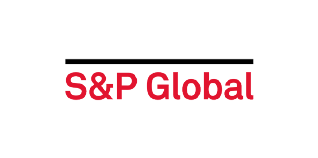
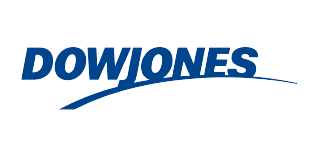
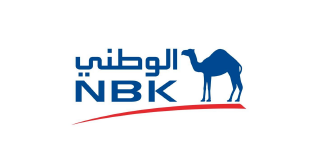
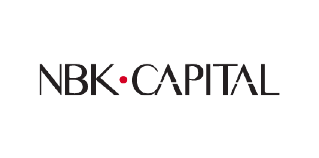
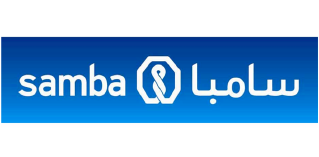
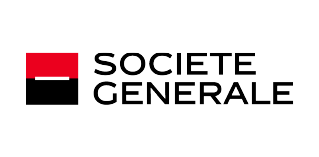
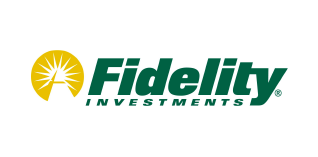
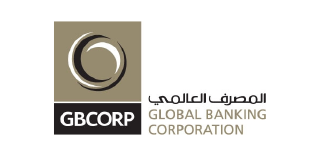
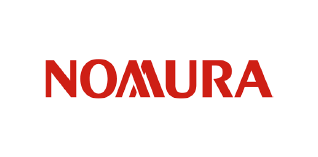
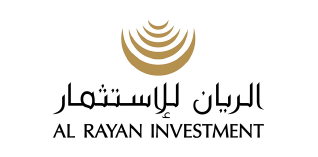
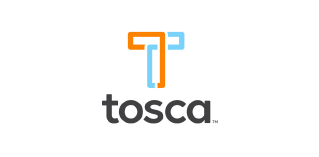
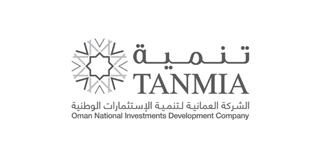
Research Reports
Ratings Intelligence publishes periodic industry insight reports. For custom reports please contact us.
Please verify your identify to view the report
Thanks for your request.
The requested report has been sent to your email id. Kindly check your email.
Contact Us
For general information
info@ratingsintelligence.com
For the best quote
marketing@ratingsintelligence.com
For Directors
directors@ratingsintelligence.com
For questions on Islamic Research
research@ratingsintelligence.com
Telephone
Reach Us
London Office
158, Coombe Lane West Kingston-Upon-Thames KT2 7DE, UK
Kuwait Office
Al Salhiya - Ali Al Salem Str, AL Jawhara Tower - 7th Floor,
P.O. Box 38920 Abdullah Al Salem, Kuwait - 72260
Bengaluru Office
Raveena Chambers, 2nd Floor 73/A DODDATHOGUR, Electronics City Phase 1, Bengaluru, Karnataka 560100



